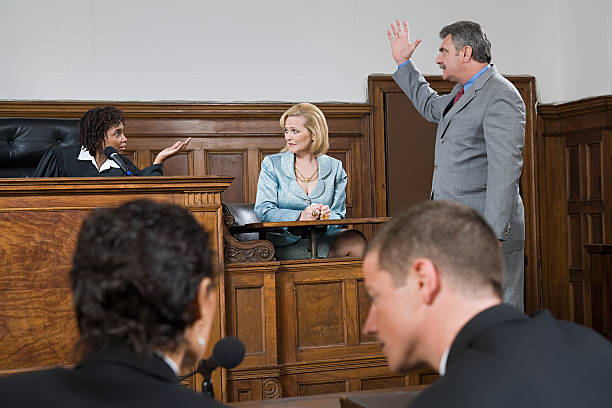
Being involved in the criminal justice system can be a confusing and overwhelming experience for both victims and defendants. Understanding the process and knowing what to expect can help alleviate some of the stress and uncertainty that comes with being a part of a criminal case. In this guide, we will break down the criminal justice process step by step, shedding light on the various stages and procedures involved.
For victims of a crime, the criminal justice process can feel like a daunting journey with many unfamiliar twists and turns. Victims need to know that they have rights and resources available to them throughout the process. From the initial report of the crime to the final resolution of the case, victims should be informed and supported every step of the way. Victims have the right to be treated with fairness and respect, to be informed of their rights and the services available to them, and to be notified of any court proceedings related to their case.
One of the first steps in the criminal justice information process for victims is reporting the crime to law enforcement. This can be a difficult and emotional task, but it is crucial to initiate the investigation and legal proceedings. Victims should provide as much information as possible to help law enforcement identify and apprehend the perpetrator. Victims need to remember that they are not alone in this process and that there are victim advocates and support services available to assist them throughout the investigation and court proceedings.
Once a suspect has been identified and apprehended, the case will move into the court system. Victims may be called upon to testify as witnesses in court, which can be a nerve-wracking experience. Victim advocates can help prepare victims for court appearances and provide support and guidance throughout the process. Victims should also be informed of their rights in court, such as the right to make a victim impact statement and the right to be present at court proceedings.
For defendants, navigating the criminal justice process can also be a confusing and intimidating experience. Defendants need to know their rights and understand the charges against them. Defendants have the right to legal representation, the right to a fair and speedy trial, and the right to present evidence and witnesses in their defense. Defendants must work closely with their attorneys to build a strong defense and ensure their rights are protected throughout the process.
If a defendant is unable to afford an attorney, they have the right to have a court-appointed attorney represent them. This ensures that all defendants have access to legal representation, regardless of their financial situation. Defendants should be actively involved in their defense, providing their attorney with all necessary information and cooperating with any legal proceedings.
Throughout the criminal justice process, victims and defendants may encounter delays, continuances, and other procedural hurdles that can prolong the case. Both parties need to be patient and understanding, as the legal system can be complex and time-consuming. Communication with law enforcement, attorneys, and court officials is key to staying informed and up to date on the status of the case.
Ultimately, the goal of the criminal justice process is to ensure that justice is served for all parties involved. Victims should feel empowered and supported throughout the process, while defendants should be allowed to defend themselves and receive a fair and impartial trial. By demystifying the criminal justice process and understanding the rights and resources available, both victims and defendants can navigate the system with confidence and clarity.
In conclusion, the criminal justice process can be a challenging and emotional journey for victims and defendants alike. By understanding the various stages and procedures involved, both parties can feel more informed and empowered throughout the process. Victim advocates and attorneys play a crucial role in providing support and guidance, ensuring that victims and defendants are treated fairly and have their rights protected. By working together and staying informed, victims and defendants can navigate the criminal justice process with confidence and clarity.